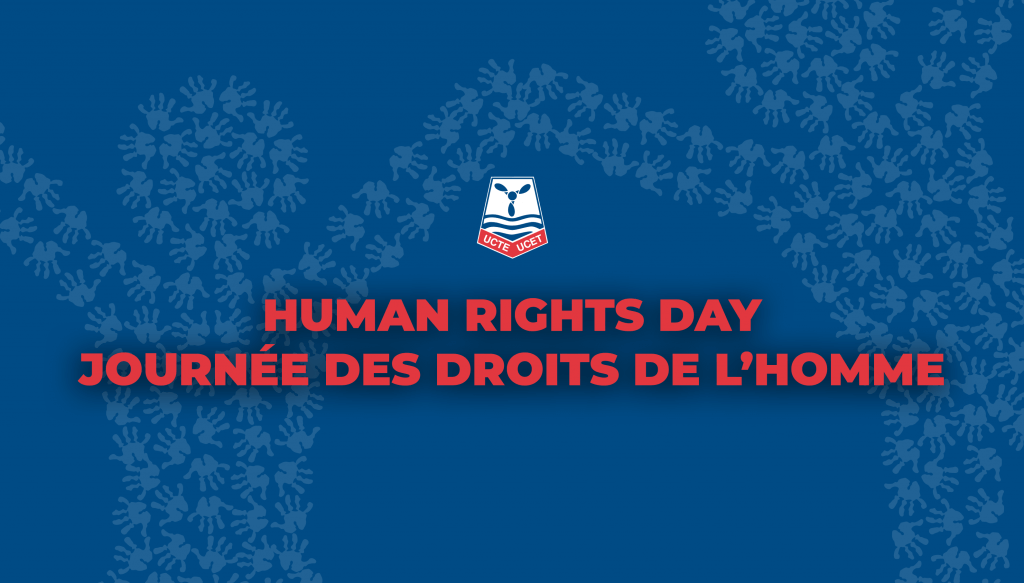Human Rights Day – December 10
Since 1948, Human Rights Day has been celebrated to commemorate the adoption of the Universal Declaration of Human Rights by the United Nations General Assembly. This event made history for all human beings around the world. From that moment on, regardless of race, colour, sex, language, religion, one’s politics, national or social origin, property, birth or other status, human beings had rights.
In theory, this sounds wonderful. The reality is very different for many of our neighbours. 2020 will be remembered, not only for COVID, but also for major social upheaval. Some people have experienced deep-rooted, systemic and intergenerational inequality, exclusion and discrimination. This is why the United Nations has decided to set the theme for 2020: Recover Better — Stand Up for Human Rights.
The United Nations explains:
10 December is an opportunity to reaffirm the importance of human rights in re-building the world we want, the need for global solidarity as well as our interconnectedness and shared humanity.
Racism is present everywhere in the world although many have chosen to believe that it is not as important an issue as it really is. In the United States, they were sitting on a powder keg. George Floyd’s death was a fitting coincidence. The Black Lives Matter movement, a movement that was started to recognize the abuse of young black women, was put in the spotlight, as has often been said.
Henri Giroux, a professor of Public Interest Studies at McMaster University in Ontario, explains that this fight against racism has brought out much bigger problems than imagined by the community. Human rights are obviously not economically and ecologically applied.
“Most importantly, BLM has infused our culture with a new lexicon, new possibilities for systemic and structural change, a growing critical sense and an activist discourse of hope,” he says.
Although Canada is known for multiculturalism, it still has a long way to go. Not only has the country been confronted with inequality in the treatment of Black Canadians, but it continues to struggle with the historical and systemic discrimination of Aboriginal peoples. Although Canada has officially withdrawn its objection to the UN Declaration on the Rights of Indigenous Peoples, it has not passed legislation that would bring Canadian laws into line.
Unfortunately, Canada must do more than simply address issues of race. The Quebec Government chose to adopt the “notwithstanding clause” in order to pass Bill 21 prohibiting public employees from wearing any form of religious symbol which makes it difficult for the law to be struck down by the courts.
The theme, Rebuilding Better — Defending Human Rights, is a call to action. It asks us to heal the wounds we may have inflicted on one another and to collectively protect those who have less power to speak out.
